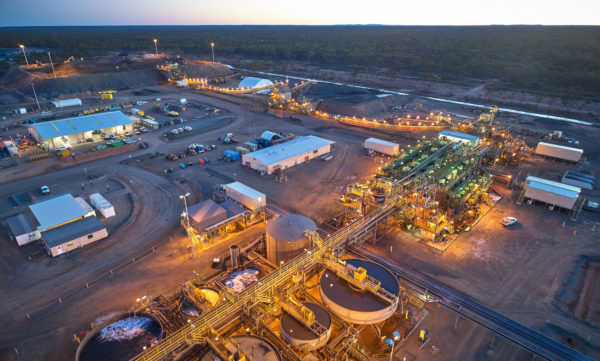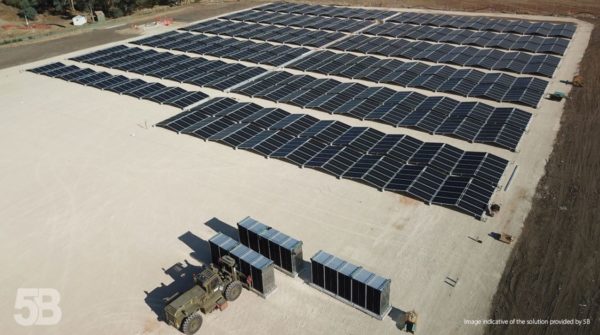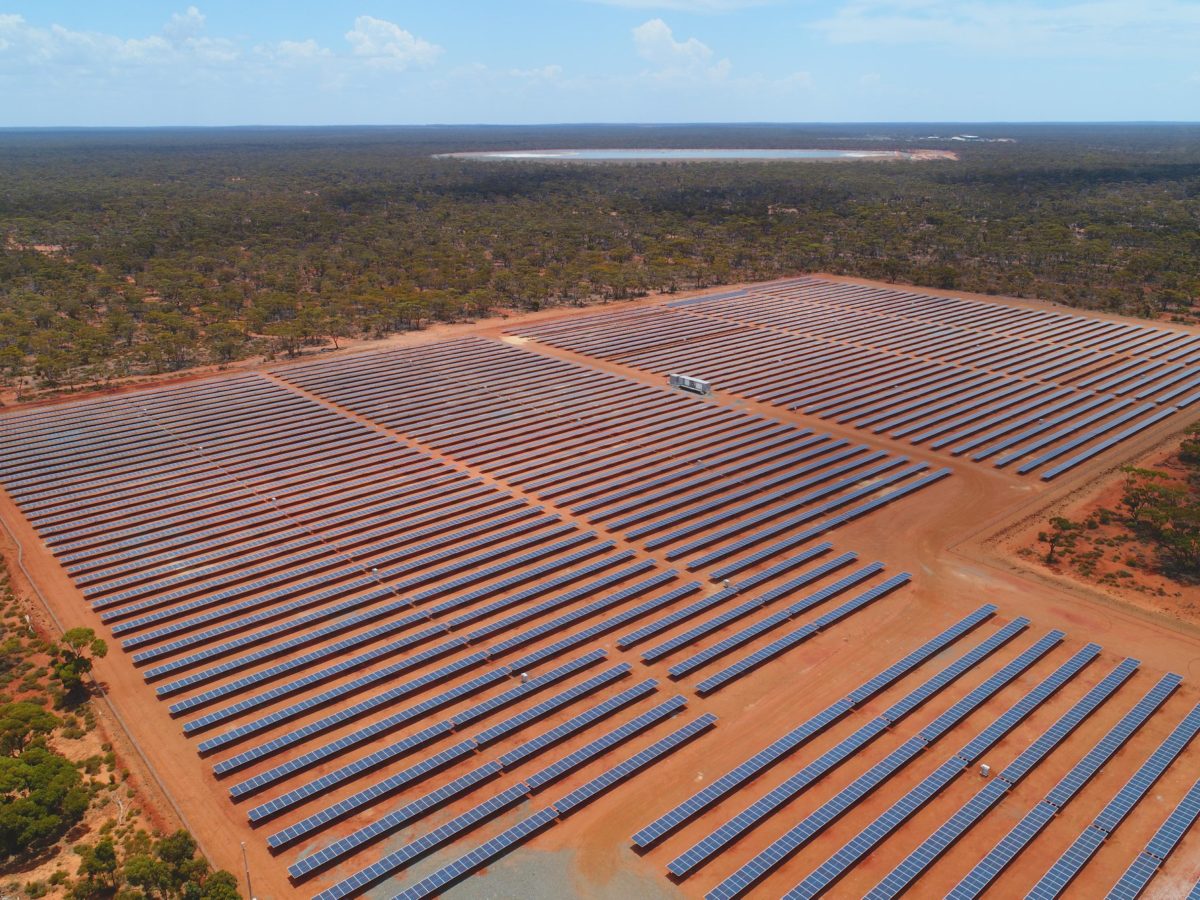Perth-based Zenith Energy has announced it will install additional solar PV and battery storage capacity at IGO’s Nova nickel-copper-cobalt operation in West Australia’s Goldfield region, allowing the mine to be powered continuously by on-site renewables for up to nine hours at a time.
The Nova site, in the Fraser Range about 360 kilometres southeast of Kalgoorlie, is currently powered by a 26 MW hybrid solar PV-diesel plant, including a 6.7 MW solar array. The addition of another 10 MW of solar capacity and the installation of a 10 MWh battery energy storage system is expected to allow for 100% renewable power generation during daylight hours, weather permitting.
Zenith, which owns and operates the existing hybrid power plant, said the deployment of additional solar generation and energy storage will be key to achieving ‘engine off’, storing sufficient power to ensure supply and reliability of the system is not compromised.
Zenith’s executive manager of growth, Dominic Da Cruz, said the project will require the integration of “specific technology into the power system to provide inertia and stability, ensuring a continuous, reliable supply of power”.
“While there are currently non-industrial micro-grids operating on 100% renewables, the Nova project will prove it’s possible to use 100% renewables to meet the demands of an operational mine site,” he said.
“It will also prove the ability for sites to go ‘engine off’ for consecutive hours, without interruption to supply.”
Da Cruz said the Nova project will also demonstrate that 100% renewable energy penetration can be sustainably achieved and replicated on other sites across Australia now, without having to wait for further advancements in technology.
“This project sends a strong message to the industry that powering an entire site completely on renewables is possible today,” he said.
“For sites where renewables are already part of the power generation system, where land permits, increasing renewable assets to go ‘engine off’ is a natural next step on the pathway to net zero.”
Fellow Western Australian energy company Hybrid Systems Australia (HSA) has already demonstrated that powering an industrial site with 100% renewables during daylight hours is achievable.
In late 2020 HSA installed a 1.2 MW solar farm, a 2 MW diesel power station and a 350 kWh lithium-ion battery at environmental services company Tellus’s Sandy Ridge mine and waste facility near Kalgoorlie. The system was switched on in December 2020 and the facility is being 100% powered by renewable energy during daytime operations, thanks to a 15-year power purchase agreement (PPA).

Image: IGO
Da Cruz said while Nova will continue to rely on diesel-generated power overnight and during inclement weather conditions, he is confident the industry is approaching a tipping point where 100% renewable power generation will be possible 24 hours a day.
“Zenith is already looking at what subsequent steps are needed to achieve this ultimate goal, including how we facilitate higher levels of renewable penetration, and integration of long-duration storage,” he said.
“It’s an exciting time not just for Zenith as a company, but for the entire industry. We’re making real progress in the decarbonization space and what that might look like for the sector moving forward.”
IGO chief operating officer Matt Dusci said the project is an important next step in the miner’s journey towards carbon neutrality and sets a new “benchmark” for the resources industry.
“We are now at a point where technology and cost structure are enabling powering of an entire mining operation with 100% renewable penetration,” he said.
“By supporting greater uses of renewable energy at our Nova operation, it will set a new industry benchmark in renewable energy integration and demonstrates our commitment to decarbonise our business.”
The existing Nova solar farm has been operational since 2019 and last year provided more than 11% of the mining operation’s total power consumption, displacing about 2,444 kilolitres of diesel and eliminating 6,600 tonnes of carbon.

Image: 5B
Zenith, which signed its original power purchase agreement (PPA) with IGO in October 2018, said the expansion project will also highlight the benefits of relocatable renewables with re-deployable modular solar technology provided by Sydney-based manufacturer 5B expected to be used.
Once Zenith’s tenure at Nova ends, the solar panels and battery energy storage system are set to be relocated to another site in what will be “the first practical demonstration at scale of relocatable renewable energy”.
“Proving this will assist in reducing barriers to capital expenditure, as renewable assets are used in multiple locations over their life span,” Zenith said in a statement. “It will also fast-track deployment of solar and further emission reductions across Zenith’s legacy portfolio.”
The announcement comes after IGO signed an agreement with Perth-based energy storage company VSUN Energy to trial a hybrid standalone power system (SPS) backed by a vanadium redox flow battery (VRFB) at the Nova site.
VSUN Energy, a subsidiary of Australian Vanadium Limited (AVL), will install a SPS based on a 300 kWh VRFB supplied by Spanish battery manufacturer E22.
AVL said the new SPS, which will be used to power a bore pump on-site, has been designed to provide a 100% renewable energy supply for much of the year, although the initial 12-month trial will target a total renewable penetration of 85-90%.
This content is protected by copyright and may not be reused. If you want to cooperate with us and would like to reuse some of our content, please contact: editors@pv-magazine.com.









2 comments
By submitting this form you agree to pv magazine using your data for the purposes of publishing your comment.
Your personal data will only be disclosed or otherwise transmitted to third parties for the purposes of spam filtering or if this is necessary for technical maintenance of the website. Any other transfer to third parties will not take place unless this is justified on the basis of applicable data protection regulations or if pv magazine is legally obliged to do so.
You may revoke this consent at any time with effect for the future, in which case your personal data will be deleted immediately. Otherwise, your data will be deleted if pv magazine has processed your request or the purpose of data storage is fulfilled.
Further information on data privacy can be found in our Data Protection Policy.